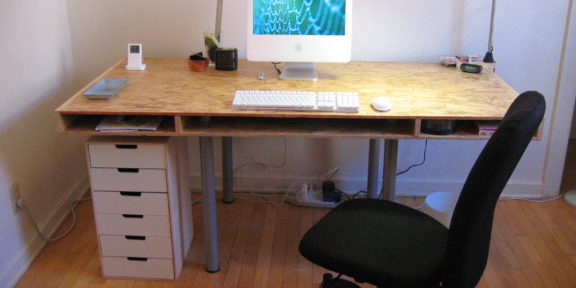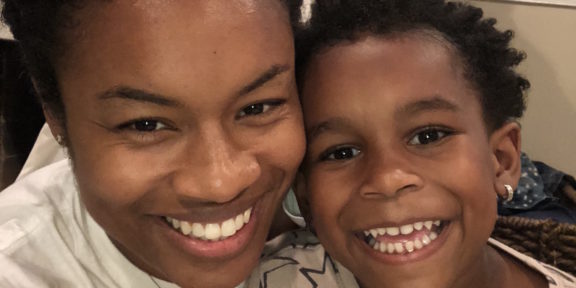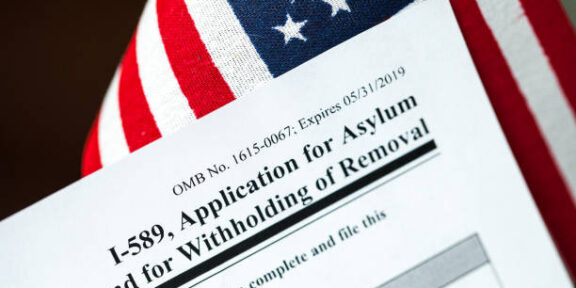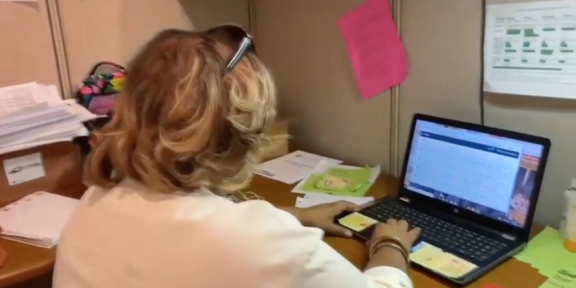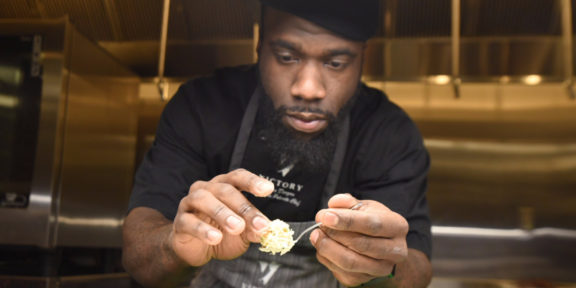Editor’s Note: This story originally appeared on The Black Capitale, a Newslab Capstone Project.
WASHINGTON – In the United States, Black women are considered the fastest growing demographic of entrepreneurs. Many of these women, however, aren’t represented in the tech industry, even though the number of Black women entrepreneurs grew by roughly 320 percent in the last 20 years.
Those who are represented, nonetheless, usually have their ideas funded by venture capitalists (VC). A recent report, in fact, revealed that 0.2 percent of all venture deals between 2012-2014 went to businesses headed by Black women.
Venture Capital Funding
Kristina Jones, tech businesswoman, is a recipient of venture funding. Jones, co-founder of the ‘Court Buddy’ app, is the 14th ever African American woman to raise $1 million for her business and represents just three percent of Black women who are in the tech industry. ‘Court Buddy’ is an app that matches potential clients with an attorney based on their budget, and was created in response to the number of people that her business partner and husband, James Jones, met in courthouses. These people often went unrepresented because they could not find, or afford attorneys to plead their cases.
“People assume that attorneys are really expensive, so they avoid attorneys all together,” James told The Black Capitale. “James’ colleagues were struggling to find clients and people were struggling to find attorneys. Clearly, there’s an issue.” In September 2014, Kristina and James began the development for Court Buddy which launched that following January.
Jones said companies that plan to get VC funding, should be up-and-running, a lesson she learned after receiving VC help. “People are so quick to build funds before they even have a business,” she said. “Black entrepreneurs need to start businesses that are venture ready. We have to understand what venture really is.”
Jones also said venture capitalists typically receive funds from independent groups, or limited partners (LP). Then, VCs choose where they want to distribute the funds. “Limited partners want to see that money returned. It’s a risk factor,” Jones said. “Every business doesn’t have that return-fund rate. You have to know your numbers.”
The venture capitalists that the Court Buddy founders met with were only interested in the financials of the business, according to Jones. “As a Black entrepreneur, you have to understand what you’re getting yourself into if you want venture dollars,” she said.
Understanding and getting those dollars can be two different things, however. According to critics of the venture capitalist industry, they believe that biases that are in society are reflected in the industry.
“There may be biases in terms of individuals that are giving venture capital out. Some of them are overt and unknown. Women are asked different questions by venture capitalists, than men. Women are forced to defend their business idea, as opposed to men who are congratulated in their ventures,” Dolores Rowen, associate director for policy and research for the National Women’s Business Council told The Black Capitale.

Though Jones acknowledges that there are biases, she thinks this will change over time. “The whole eco-system of venture firms is used to fund white men. Over time the funds will start to change. We have to look at the age of venture firms, and the age of America. It’s somewhat of a no-brainer. Having more success stories with Black women, and men, and races will change the interaction of cash flowing through business,” she said.
Pulling Up the Bootstraps
Court Buddy has received numerous awards such as the American Bar Association’s ‘Above the Law’ competition and won the American Entrepreneurship Award in 2016 since its launch. Before the awards and venture funding, Jones had to use her own money to keep Court Buddy afloat, which is known as bootstrapping.
“We bootstrapped for the first two years,” she said. “When we started, we didn’t even think of venture funds. We just know there was something to solve, and we came up with a solution.”
Rowen, however, said bootstrapping isn’t uncommon.“Fifty-one percent of women use their personal savings to start their business. Fifty-nine percent of men use their personal savings,” she said. “There’s a large number of people don’t use venture capital to fund their businesses.”
Tech entrepreneur, Janice McRae, is one of those people.
McRae is the founder of the technology firm, Nexus 8 International, which develops solutions for the healthcare industry. One of its products is an app made specifically for doctors called Hippra, which provides medical collaboration and communications. Instead of opting for VC funding, she plans to stick to the bootstrapping method.
“I want Hippra to be an independent venture because venture capitalists take chunks of everything that is earned years down the road,” McRae told The Black Capitale. McRae, in fact, has had to use interns since she can’t afford to have paid employees.“It’s a reality of Black women who don’t have employees,” she said. “The struggles of having unpaid interns is getting them to stay for long periods of time.”
According to the National Women’s Business Council, 97.5 percent of Black women business owners have no other employees than the owner. “I have to pay out of pocket, and although I may not be able to pay interns, at the end of their time with Nexus 8 International, they have equity within the company,” McRae said.
McRae developed Hippra after she heard a story of a mother who had issues with finding a diagnosis for her ill son.“Somebody somewhere has the diagnosis to something,” she said. “Hippra serves as a way for physicians to connect and converse with other physicians to find these diagnoses.”McRae, in addition to tech entrepreneur, is a physician with a background in speech and language pathology.
During the early stages of development, McRae had no prior knowledge of the tech field and relied heavily on web developers and her mentors.“I went to meetings and conferences,” she said. “You have to go to places that are relevant to what you’re doing. You have to meet people.”
Having the Support
Having mentors and people to rely on has been important to self-proclaimed “serial entrepreneur,” Shelly Bell, who is one of the approximate 1.5 million Black women business owners in the U.S.
Black women business owners contribute $42.2 billion dollars in receipts, as of 2012, according to the National Women’s Business Council.
Bell’s most recent venture is the Washington-based enterprise, Black Girl Vision, which is dedicated to encouraging a collaboration between Black women in order to create capital for their businesses. “I didn’t really have the community when I was starting my business,” Bell told The Black Capitale. She wanted to change that. “I created Black Girl Vision because I wanted to focus on the coverage that Black women weren’t getting,” she said. “I wanted to move the needle to help Black women gain capital to start their businesses.”
Bell, who is a former technology veteran and current Google Digital Coach — a program sponsored by Google dedicated to helping entrepreneurs—, said she’s not surprised that Black women receive very little funding for their startups because she saw first-hand bias in the tech industry.
Bell, who has owned businesses in event organization, writing, and t-shirt printing, said Black women having their own advocates is important in making strides in the field. North Carolina Agricultural and Technological State University alumna said she remained in tech because she had a support system.“I stayed in tech because I had Black woman teachers.”
She also believes a sense of community is essential for Black women to thrive in the tech industry.“We need community, and mentorship for Black girls.” she said. “ We need to notice that one individual girl in the engineering class.”


